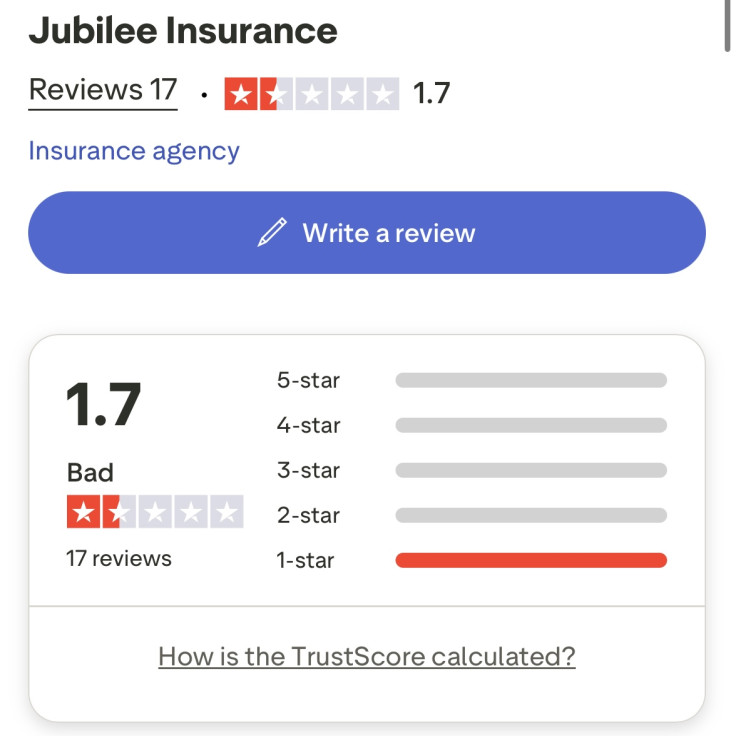AI Bots Targeting Diaspora Families on X With an Insurance Scheme
Bot-generated testimonials pushed Jubilee Health onto X's trending page, exploiting diaspora families while raising urgent questions about online safety

Scams on social media have become increasingly unavoidable, with suspicious promotions even breaking into X's high-visibility trending page. A recent — and particularly malicious — example is an insurance brand calling itself Jubilee Health, which surfaced on the platform's front page accompanied by a flood of glowing 'testimonials'.
Many of these posts were clearly bot-generated, all echoing the same scripted praise about the company's promise to provide healthcare coverage for diaspora families, especially those split between Africa and abroad. The framing makes it clear: this campaign is engineered to exploit vulnerable and marginalized communities. But how exactly do these ads work, and what does their reach say about the state of internet safety today?
Fraudulent Ads Hiding Behind Glowing Testimonials
In today's climate, it is essential to approach online advertising with caution. Even when an ad appears to be connected to a recognizable brand, there's always the risk that it is being used as a front by fraudulent operators. That doesn't mean every ad is malicious, but it does mean users should be vigilant about what they engage with. In the case of Jubilee Health, the seemingly endless stream of glowing testimonials may initially appear convincing. Yet, a closer look reveals that many of these endorsements are manufactured.
Jubilee Health Insurance ensures the plans are accessible to diaspora members in different geographies—UK, US, Middle East, etc.—tailoring contributions accordingly. #SendCareBackHome pic.twitter.com/zaWZMnowiB
— KAY (@ItsNjorogeK) October 1, 2025
A clear pattern emerged on X: countless accounts posted the exact same sentence, 'The Jubilee Health Insurance ensures the plans are accessible to diaspora members in different geographies—UK, US, Middle East, etc.—tailoring contributions accordingly.' When identical phrasing appears across multiple profiles, it's a clear indicator of bot activity rather than genuine user endorsement. To amplify the illusion of popularity, these same accounts frequently replied to one another, creating artificial engagement designed to push the promotion higher in X's algorithm.
While many legitimate businesses now lean on botted engagement, Jubilee Health stands out because its very foundations are shaky. The company holds a dismal 1.7 out of 5 stars on Trustpilot — a score made more damning given that even Trustpilot ratings can sometimes be artificially inflated.
False Sense of Urgency
Such a low rating raises serious concerns about its practices. Frustration is echoed on Reddit, where one user recounted: 'My father paid Jubilee 55,000 and 80,000 yearly for 20 and 17 years for life insurance. They're giving a total of 700,000 upon asking them to pull out. The 55,000 policy turns out to be 1,100,000 if you purely save that money. The 80,000 policy turns out to be 1,600,000.' Testimonies like this paint a stark picture of a business built on false promises.
This incident highlights a larger problem: internet scams that deliberately target marginalized communities. In this case, the scheme appeals to those separated from their families in the diaspora, exploiting a vulnerable group for quick profit. Migrant families are often less familiar with legitimate local insurance providers, so when presented with what looks like a simple system to support loved ones back home, it's easy to see why many would be drawn in. By leveraging the emotional weight of family separation, Jubilee Health creates a false sense of urgency that pressures people into signing up.

It also raises an important question: do platforms like X have an obligation to strengthen their algorithms against scams? When an apparent fraud makes it to the front page, reaching wide and impressionable audiences, the platform itself becomes complicit in its spread. Without more effective scam detection systems, social media risks becoming a breeding ground for fraud, heightening the danger for at-risk communities who depend on these spaces to connect and communicate.
Ultimately, raising awareness is essential, especially for those most vulnerable to these schemes. Internet fraud can inflict lasting financial and emotional harm on individuals who may not fully grasp its consequences. That's why visibility matters: it not only helps prevent further damage but also pressures social media companies to take responsibility and strengthen protection against such exploitation.
© Copyright IBTimes 2025. All rights reserved.





















